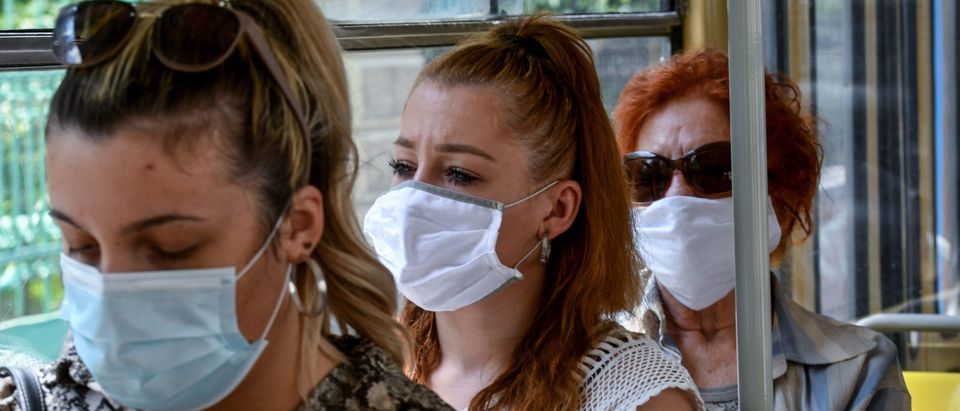Who could have guessed that President Trump would have become an enthusiastic convert to the thinking of the 20th century’s most famous economist, John Maynard Keynes?
Keynes offered advice for escaping the ravages of the Great Depression, mostly through government-sponsored deficit spending (along with surpluses in the good years, a point often overlooked today). His most quoted aphorism, found in his 1936 classic work, “The General Theory of Employment, Interest and Money,” explained the tradeoffs between short-term and long-term costs and benefits.
Keynes put the matter succinctly: “in the long run we are all dead.” The point was simple: while some proposed economic policy solutions might, ultimately, prove to be correct in the long run, what are their costs today?
This Keynesian quip popped into my head when I heard President Trump observe at his renewed White House COVID-19 task force briefings that, ultimately, the novel coronavirus would die out. (Earlier this year, as the pandemic was gaining momentum, Trump told us that the virus would just stop all by itself by April).
So, yes, President Trump is correct: at some point, the virus will die out, there will be herd immunity, and there will be a vaccine. In the meantime, however, people have to live their lives and assess how best to balance their personal safety with a return to a more normal economic environment. By the time the virus is no longer a daily preoccupation of most Americans, how many lives will be lost, and how much economic harm will have been done?
COVID-19 is an epidemiological Black Swan: an unanticipated event with enormous health, economic, social, and political consequences, most of which are negative. We still know very little about this disease: how it mutates, how it affects major bodily organs, how long immunity might last, and how it affects people depending on their age.
Even our most experienced experts are feeling their way in battling what Dr. Anthony Fauci has deemed an epidemiological perfect storm: transmission from animals to humans, highly contagious, and high morbidity rates.
In several instances, the experts (and almost everybody else) have made mistakes, but given the multiple uncertainties associated with COVID-19, occasional errors are not a reason for ignoring the best available scientific advice.
Which takes us to the raging controversy over whether to wear face masks. Why has this simple recommendation become so politicized?
Even before stopping the coronavirus pandemic became the country’s most pressing concern, people were asking why so many aspects of contemporary American life had become so politicized.
Wearing face masks now joins a growing list of public policy issues, across the political and ideological divide, about which fact-based, rational discourse is declining: abortion, education spending, school choice, entitlement reform, Federal Reserve policy, the 2020 census and climate change. As a society, we’re increasingly skeptical of experts and often dismiss their work out-of-hand. The anti-vaccine movement is a perfect, and dangerous, example of this tendency.
What we’re seeing today is not new in American history. The late Columbia University historian, Richard Hofstadter, published in 1962 one of the most important studies of this tendency: “Anti-intellectualism in American Life.” Earlier this year, just in time for the pandemic’s arrival, the Library of America republished Hofstadter’s famous study, along with “The Paranoid Style of American Politics” and several other of his essays.
By “anti-intellectualism,” Hofstadter was referring to “a national disrespect for mind.” He wrote that “the elite upon which culture depended for its transmission was being debased by the demands of a rude social order” and noted the emergence of “the generically prejudiced mind.”
Hofstadter studied several episodes of anti-intellectualism throughout our history, including an interesting discussion on the 1950s McCarthy era. With respect to the presidency of Andrew Jackson (a special favorite of Donald Trump), he writes about how that era “downgraded the functions of the expert and the trained man to a degree which turned insidious when the functions of government became complex.”
Vigorous debate in this country is healthy and essential. We should always challenge expert opinion, but we should also be careful about dismissing it outright. The late U.S. Senator (and intellectual) Daniel Patrick Moynihan is famous for saying that people are entitled to their own opinions but not their own facts.
Epidemiologists like Anthony Fauci deal in facts, not opinions or ideology. When Dr. Fauci suggests wearing a mask, I wear a mask. You should too. COVID-19 doesn’t care whether you’re a Democrat or a Republican.
Charles Kolb served as Deputy Assistant to the President for Domestic Policy from 1990-1992 in the George H.W. Bush White House


